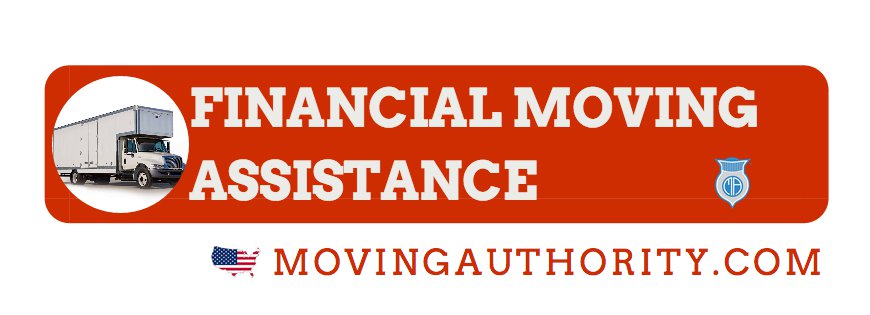When is Financial Moving Assistance Helpful?

10 Signs You Might Need Help:
When is Financial Moving Assistance Granted?

- What Happens To Those Who Can't Afford To Move?
- Natural Disaster: Horrific Displacement
- Home Owners
- Do the Homeless or 'Almost' Homeless Receive Financial Aid?
- Displacement Due to Demolition Backed by Federal Funds
- How Does Employer Financial Assistance Work?
- Sell Items You No Longer Want
- Donations are Always Taken
- Create a Budget That's Right For You
- Start Getting Accurate Estimates: Communication is Key
1. What Happens To Those Who Can't Afford To Move?
Almost everyone has to move at least once, if not more, in their lifetime for all different types of reasons unique to each individual or family. What many people don't consider is that the entire process of moving is quite expensive, especially if there is a lack of communication between the shipper and carrier. Without thorough communication, there is always a high chance that your original estimate will be more expensive, mostly due to lack of communication between carriers and shippers. For many of those who can afford to move from home to home has an ideal life and are able to choose where, when, and how they want to move.
However, what if you need to move but you don't have the financial means to? Unfortunately, this is a sad truth that many faces, leaving them with questions about how to proceed and ultimately with the feeling of being financially stuck. If this is ringing a bell for you, keep reading about how you and your financial status can get some of the attention it deserves.
2. Natural Disaster: Horrific Displacement
Financial assistance is only one out of a number of resources to help you through the struggle of financial difficulties and extreme expenses of moving. One of the largest supported financial assistance programs is the Federal Relocation Assistance Program. However, their priorities lie with those who are victims of natural disaster and have been displaced from their homes due to the uncontrollable powers of our environment. Typically, this type of assistance program helps small business and families with the costs of moving after something terrible has happened. Take Hurrican Katrina, for example, what would you do if your life's belongings were reduced to nothing? To most, the idea of this is unimaginable, but those who live in areas where disasters occur, this notion is very real and very scary. Another, lesser known hazardous disaster was in Porter Ranch, CA, where a gas leak was creating a combustible environment for its residents, forcing them to relocate their homes.
3. Home Owners
Homeowner's or those with a mortgage are able to obtain a grant that will generally help with moving expenses and even a deposit for a home that is similar in size and quality to their previously destroyed homes.
4. Do the Homeless or 'Almost' Homeless Receive Financial Aid?
As a renter, you must qualify as being homeless or at least 'basically' being homeless to even earn financial assistance. With this financial help, the homeless or at-risk of being homeless, are assisted with moving costs, transportation, and even covering a deposit for an apartment. Not only that, some applicants even have the potential to receive financial rental assistance for a temporary period of time.
5. Displacement Due to Demolition Backed by Federal Funds
However, these aren't the only ways you can receive financial assistance. Many don't consider the displacement of peoples due to federal projects or demolitions in their neighborhood. Clearly, anything they say means very little but at least they are offered displacement and relocation services. Generally, the U.S. Department of Housing and Urban Development is responsible for handling the displacement and financial assistance to individuals and families forced from their home due to federally funded projects. No matter how unfortunate displacement is, it is incredibly important to be aware of what you are entitled to. This is a time to educate yourself on your rights in order to understand what the options before you are. As you research and follow your options, keep in mind that it's always best to be as prepared as possible. So, first figure out your options, then get ahead start on calculating the move. These options are as follows:
1. This involves payment as an option to compensate for moving expenses including:
- Receiving a fair amount of funds in regards to your reasonable moving or other related expenses
- Getting a fixed moving expense & dislocation allowance [this partially reimburses a member for the expenses incurred in relocating the household]
- In the best of circumstances for the displaced: A combination of both of the above-stated compensations
2. Replacement housing assistance:
- This will allow you to either rent or buy a home equivalent to your previous home, either by using a form of rental assistance or purchasing assistance
6. How Does Employer Financial Assistance Work?
Corporate or office relocation is an incredibly strenuous process for both management and employees. If you find yourself in a position where you are required to move for your job but you're not quite sure if you can afford it, they may have a financial assistance program to assist you in your move. Keep in mind, when an employer moves their business from one place to another, they want their staff to move with them because they value their employees.
If you find yourself stuck between a rock and a hard place, consider your options with your business company. For example, if you need to move to another state, most employers will provide financial assistance or allowance. This should cover moving expenses such as deposits for renting a new place, utilities, and even pay for the services of a professionally specialized corporate moving company.
It's important to remember that each company is unique, so it's vital for you and your bank account that you find this information out before committing to a move. Don't be afraid to ask questions like whether or not you have to pay everything up front and wait to be reimbursed or whether you will be taken care of prior to the move. Communication with your employees is absolutely necessary prior to your move, everyone should discuss financial assistance as an option during employee relocation.
7. Become a Pro Mover: Sell What You Don't Want & Get $$ Cash $$000000
Sadly, not all of us will be accepted as quality applicants for any type of financial assistance. This means you're going to have to fend for yourself, prepare for any unwanted surprises, and work for your rent to figure out how to make that extra dough you desperately need. Well, one solution that is quite easy, unless you like to hoard items, would be to sell things you no longer want or need.
There are three upsides to this:
1. Selling your items will help fund your next move
2. Your overall cost of your move will go down
3. Furniture is one of the best ways to lighten your load
In order to sell these items, you have a few options. Posting them online is always an option but isn't always the safest way. A much easier solution would be to have a garage sale featuring all your unwanted items, including furniture (that's not too beat up of course), clothes, etc. Any collectibles you want to sell may have some worth to them, so in this type of case, finding a reputable website to sell them on would be the best but not your only option.
8. Donations Are Always Taken
Please don't forget that there may be other that are even less fortunate, so donating things to the Salvation Army, the Goodwill, or other places such as these is also a sincere option. It gives you the choice to make a difference in someone's life, however, we strongly encourage you do not donate anything that is in terrible condition.
9. Create a Budget that's Right for You
Once you've finished selling or donating all the possessions you could do without, it's time to create a budget with the money you've gathered and saved for this move. Sticking to this budget is imperative, especially if you aren't loaded with cash. We generally recommend trying to make a moving timeline to align with your budget. This helps to keep your spending on track and will also keep you organized during the moving process.
10. Start Getting Accurate Estimates: Communication is Key
With a budget in mind, start browsing around and begin getting accurate moving estimates from moving companies. At Moving Authority we have a large, comprehensive list of reputable moving companies to acquire estimates from. One last piece of advice: when obtaining an estimate, communication is most important. You must let the movers know every detail regarding your move (i.e. how many boxes, are there stairs, elevator, etc.), other you are much more likely to be given an inaccurate estimate. This is not due to the movers, but due to the fact that important information was left out.


Add Comment